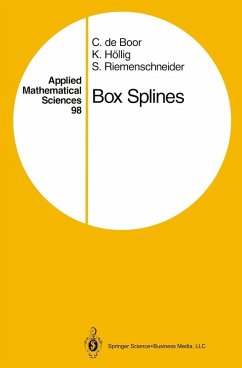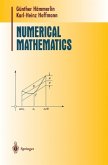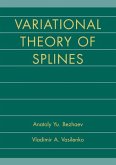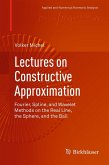Compactly supported smooth piecewise polynomial functions provide an efficient tool for the approximation of curves and surfaces and other smooth functions of one and several arguments. Since they are locally polynomial, they are easy to evaluate. Since they are smooth, they can be used when smoothness is required, as in the numerical solution of partial differential equations (in the Finite Element method) or the modeling of smooth sur faces (in Computer Aided Geometric Design). Since they are compactly supported, their linear span has the needed flexibility to approximate at all, and the systems to be solved in the construction of approximations are 'banded'. The construction of compactly supported smooth piecewise polynomials becomes ever more difficult as the dimension, s, of their domain G ~ IRs, i. e. , the number of arguments, increases. In the univariate case, there is only one kind of cell in any useful partition, namely, an interval, and its boundary consists of two separated points, across which polynomial pieces would have to be matched as one constructs a smooth piecewise polynomial function. This can be done easily, with the only limitation that the num ber of smoothness conditions across such a breakpoint should not exceed the polynomial degree (since that would force the two joining polynomial pieces to coincide). In particular, on any partition, there are (nontrivial) compactly supported piecewise polynomials of degree ~ k and in C(k-l), of which the univariate B-spline is the most useful example.
Dieser Download kann aus rechtlichen Gründen nur mit Rechnungsadresse in A, B, BG, CY, CZ, D, DK, EW, E, FIN, F, GR, HR, H, IRL, I, LT, L, LR, M, NL, PL, P, R, S, SLO, SK ausgeliefert werden.









